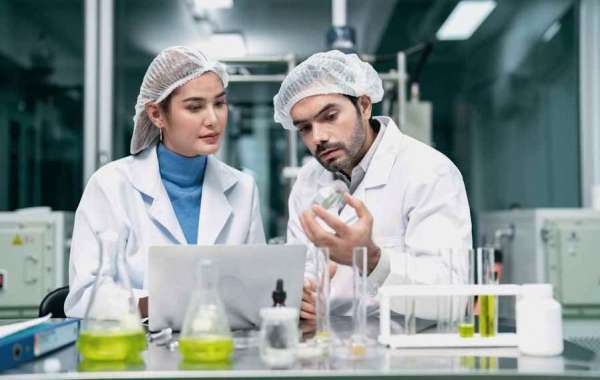Drug discovery or drug development from start to finish is a complex and multi-step process. It involves many different teams of scientists, researchers, and experts working together over many years. The entire drug development journey has five major stages. Each stage plays a crucial role in making sure new medications are safe and effective before being made available to the public. Let's look at these stages:
Stage 1: Discovery
This is where the initial research happens to identify potential new drug candidates. Scientists search for molecules that could treat or cure a particular disease. They either test existing compounds or create brand-new ones using advanced chemistry techniques. Thousands of different molecular combinations get screened and analyzed through computer simulations, animal studies, and laboratory experiments. Highly skilled research scientists plan and carry out these experiments to evaluate if the compounds are effective against disease cells.
Pharmaceutical consulting helps in the identification and validation of biological targets for new drugs. Biochemists also lend their expertise, studying the biological mechanisms of how diseases and compounds interact. Only the most promising compounds make it through this rigorous discovery screening process to the next stage.
Stage 2: Pre-Clinical Testing
The successful compound molecules from discovery now go through pre-clinical testing and refinement to transform them into actual drug candidates ready for human trials. Pharmaceutical scientists determine the optimal dosage, formulation (pill, liquid, etc.), and manufacturing process for the drug candidate. They run further animal and lab testing to ensure its safety and quality. Their testing focuses on potential toxic effects and whether the drug is likely to work as intended.
Stage 3: Clinical Trials
If the pre-clinical data looks promising, the drug candidate advances to clinical trials - the most critical stage where it gets tested in humans for the first time. There are typically four phases:
- Phase 1 - Small trials in healthy volunteers to evaluate safety and dosage.
- Phase 2 - Larger trials in patients with the target disease to initially assess efficacy and potential side effects.
- Phase 3 - Expanded large-scale trials in hundreds or thousands of patients to confirm therapeutic benefits and monitor adverse reactions.
- Phase 4 - The drug gets approved but continues to be monitored in the real-world setting.
Clinical trial coordinators carefully manage and oversee every aspect of these complex human studies according to strict protocols. Pharmaceutical consulting creates strategies to improve patient recruitment and retention in clinical trials. Data managers ensure the accurate collection and analysis of all trial data.
Stage 4: Regulatory Approval
If the clinical trials show the drug is safe and effective, an enormous amount of data gets submitted to regulatory bodies like the FDA or EMA for review and approval. Regulatory experts help compile the submission, ensure compliance, and work closely with the agency through the approval process. Safety specialists also play a key role in this stage, continually monitoring and evaluating any potential drug safety issues both during clinical trials and after a drug gets approved and released to the public. Only after regulatory approval can the new drug's manufacturing and distribution begin.
Stage 5: Manufacturing and Distribution
The new drug goes into commercial-scale production in this final stage according to tightly controlled quality standards. Quality inspectors rigorously evaluate every batch of medication before it gets released to confirm it meets all specifications. Supply chain logistics experts then coordinate to ensure efficient delivery of the approved drug product from manufacturing facilities to hospitals, pharmacies, and patients worldwide. They manage inventory, distribution, and other operational aspects. Quality checks and regulatory compliance oversight continue throughout this manufacturing and supply process.
Bringing a new drug from initial discovery to widespread clinical use involves an astonishingly complex journey spanning many years of effort by multidisciplinary teams. The five key stages - discovery, pre-clinical, clinical trials, regulatory approval, and manufacturing - each represent major hurdles that must be successfully cleared. Many pharmaceutical consulting firms help you provide consistent guidance towards each stage of the drug development process.




